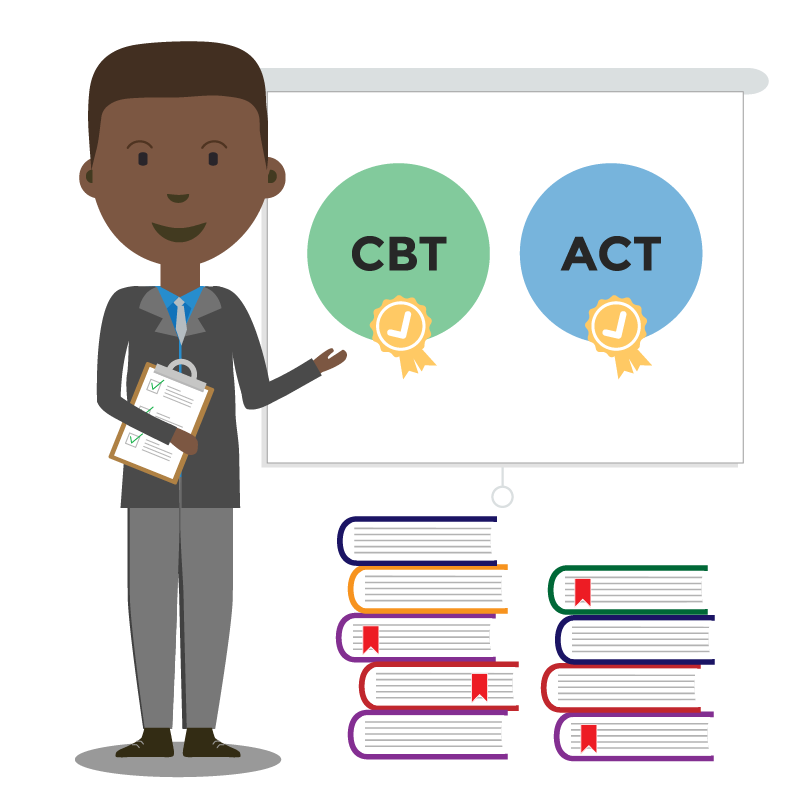MIRECC / CoE
Proven Treatments for Depression
Let's take a look at two proven treatments for depression, Cognitive Behavioral Therapy (CBT) and Acceptance and Commitment Therapy (ACT).
Let's explore two effective treatments for depression

Cognitive Behavioral Therapy (CBT) and Acceptance and Commitment Therapy (ACT) are two "talk therapies" that have been proven effective in treating depression. These treatments are based on the idea that how we feel is related to: (1) the thoughts that run through our mind and (2) our behaviors, or how we spend our time. People who are depressed are more likely to have thoughts that are extreme or unhelpful. They also stop doing things they care about or that make them feel good about their lives.
Both CBT and ACT teach proven skills for thinking and acting that are key to beating depression, though each treatment is somewhat different in its focus. For example, in CBT, clients learn how to change extreme or unhelpful thoughts that contribute to depression. In ACT, clients learn to change how they relate to their thoughts so that the thoughts don't have the power they once did.
Learn more about these proven treatments
Check out the information below for a brief summary of the two treatments. Then select the treatment you wish to learn more about!
Treatment focus:
CBT
Cognitive Behavioral
Therapy
Thoughts:
- Learn how to change negative thoughts so that thinking is more balanced and realistic
- Learn skills for solving problems and making choices
Behaviors:
- Identify and increase activities that provide joy and satisfaction
- Learn skills for reducing stress and increasing relaxation
Treatment focus:
ACT
Acceptance and Commitment
Therapy
Thoughts:
- Learn how to accept and get untangled from painful thoughts so that they no longer have the control they once did
- Learn skills for living more flexibly and adapting to life situations
Behaviors:
- Clarify what matters most in life and take steps to put these things into action
- Learn skills for staying focused on the present moment
Questions or problems? Contact Rocky Mountain MIRECC.
Site Map
Contact Information
Colorado
Rocky Mountain Regional VAMC (RMR VAMC)
1700 N Wheeling St, BLDG A2
Aurora, CO 80045
303-399-8020
RockyMountainMIRECC@va.gov
Utah
VA Salt Lake City Health Care System
500 Foothill DR
Salt Lake City, UT 84148
801-582-1565 ext 2835



















